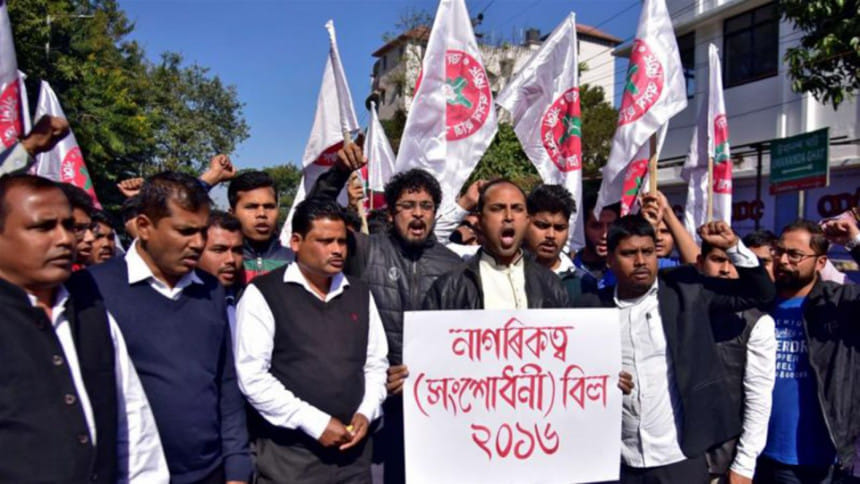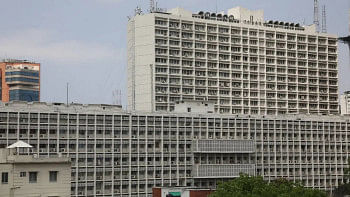What does the future hold for Assam?

It seems like "Yesterday Once More" in the political churn in the north-eastern Indian state of Assam. First, it is the National Register of Citizens (NRC) to weed out "illegal" immigrants from Bangladesh irrespective of their faith, and now it is the Citizenship Amendment Bill to give citizenship to non-Muslims from Bangladesh, Afghanistan and Pakistan. On January 7, the Lok Sabha, where the Bharatiya Janata Party (BJP) has a clear majority, passed the bill which, however, remained stuck in the Rajya Sabha, where the party lacks the numerical strength. The party is possibly waiting for the fortnight-long budget session set to start on January 31 to push it through in the Rajya Sabha without any certainty that the opposition will allow it to happen as the ruling party hopes the passage of the legislation will add muscle to its ideological narrative in the run-up to the parliamentary polls.
While the NRC revived the ethnic and linguistic divides between the Assamese-speaking people and other tribal groups in the northeast with their distinct mother tongues, the Citizenship Amendment Bill has added a religious fault line by proposing Indian citizenship to Hindus, Jains, Sikhs, Parsis and Christians from Bangladesh, Afghanistan and Pakistan.
The passage of the Citizenship Amendment Bill in the Lok Sabha coincided with a 12-hour shutdown in Assam and other north-eastern states that evoked a good response in most areas. This was preceded and followed by almost regular street protests in Assamese-speaking majority areas of Assam and other parts of north-eastern states like Meghalaya, Mizoram, Tripura, Nagaland and Arunachal Pradesh, creating unrest and political realignment in the region. There were also protest marches and class boycott by the powerful All Assam Students Union (AASU), which had led a violent agitation for six years from 1979 to 1985 against the illegal immigration of Hindus and Muslims from Bangladesh.
More worryingly, murmurs of "independent Assam" were heard on January 7 at a meeting resulting in the lodging of FIRs against a leading intellectual, Hiren Gohain, journalist Manjit Mahanta and rights activist Akhil Gogoi on the charge of sedition. Equally disquieting was the threat held out by the United Liberation Front of Asom (ULFA) to pull out of the peace talks with the government which have been underway for the last seven years. Taken together, all these developments, many in Assam think, have tended to create the atmospherics that hark back to the years of agitation against illegal immigration in 1980s and the ULFA insurgency in 1990s.
The BJP must have factored in the political cost of pushing through the Citizenship Amendment Bill. Its key ally in Assam, Asom Gana Parishad, has parted ways with the saffron party, and strong unhappiness is emanating from other allies in Meghalaya, Nagaland, Tripura, Manipur, Arunachal Pradesh and Mizoram. The BJP shares power with the regional outfits in three of these states while enjoys friendly ties with ruling parties in the others. The BJP made "illegal" immigration from Bangladesh a major plank in the 2014 parliamentary election in Assam and the 2016 assembly polls in the state that helped the party to come to power.
As I said in an earlier article on the issue of NRC, the BJP is working on a two-track mission in Assam: first, it is backing NRC to stop immigration of Hindus and Muslims without publicly naming any community to woo the majority of the people in the state's Brahmaputra valley, whose mother tongue is Assamese. Secondly, to address the ruffled feelings among Bangla-speaking Hindu immigrants concentrated mainly in the Barak valley, it brought the Citizenship Amendment Bill. The result is rather intriguing: Assam has now three separate cut-off dates for identifying "illegal" immigrants: (1) as per NRC, it is 1951; (2) as per the 1985 Assam peace accord (which ended six years of anti-"foreigners" agitation by AASU), it is March 24, 1971, (the day the Operation Searchlight was launched by the occupation Pakistan army in Bangladesh, sparking the outflow of refugees from that country into India); and (3) as per the Citizenship Bill, it is 2014.
The BJP supports NRC and is keen to implement the Assam Accord in its totality and turn the Citizenship Amendment Bill into an Act. But all its allies in the northeast disagree and contend that the Citizenship Bill runs counter to the Assam Accord and makes it rather meaningless. Their argument is that the Assam Accord talks about "all" illegal immigrants—Hindus and Muslims—while the Citizenship Bill talks only about Hindu immigrants.
In a bid to sugar-coat the Citizenship Bill and hard-sell it in the northeast, the Narendra Modi government set up a nine-member committee to implement Clause 6 of the Assam Accord, which is aimed at ensuring reservation for the Assamese-speaking majority in certain categories of jobs and admission in educational institutions. Besides, Home Minister Rajnath Singh has assured in parliament that the government would protect the north-eastern state's identity and culture. However, it seems there are not many takers for the government's gesture. The committee's fate is uncertain as its chairman and five other members chosen by the federal government have refused to be a part of it, sensing the public mood in Assam, while AASU declined the invitation to nominate a member to the panel.
Why is the BJP bent on pushing through the Citizenship Amendment Bill risking its allies in the northeast? The region has a total of 24 parliamentary seats at stake. The party is pinning its hopes to as many of them as possible in order to compensate for the shortfall it might face in other parts of India, especially the heartland states of Uttar Pradesh, Madhya Pradesh, Rajasthan and Chhattisgarh, where its electoral graph has reached the saturation point in the last four years and is now facing the law of diminishing returns. One reason could be that the BJP is enthused by its impressive performance in recent panchayat polls in Assam.
But the BJP is clearly looking at the political message of the Citizenship Bill beyond Assam and other parts of the northeast to carry forward its Hindutva statement. The BJP is of late further sharpening its ideological narrative as evidenced by its chief Amit Shah's speech at the party's National Council meeting in New Delhi on January 11, where he dug into history and likened the coming parliamentary polls to the battle of Panipat in 1761 that had pitted the Hindu Maratha Peshwas (warrior) against the Afghan army of Ahmad Shah Abdali. A few days before Shah's speech, a similar Hindu nationalistic tone was the core of Assam's senior BJP leader Himanta Biswa Sarma who ratcheted up the rhetoric by claiming that the Citizenship Bill would ensure that certain parts of the state do not go the Muhammad Ali Jinnah way. It remains to be seen what the past and the future of ethnic-linguistic-religio political cauldron of politics hold for Assam and the north-eastern India.
Pallab Bhattacharya is a special correspondent for The Daily Star.





Comments